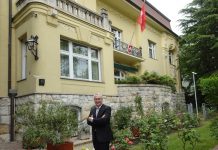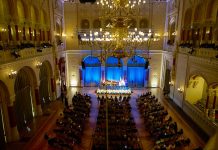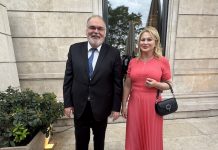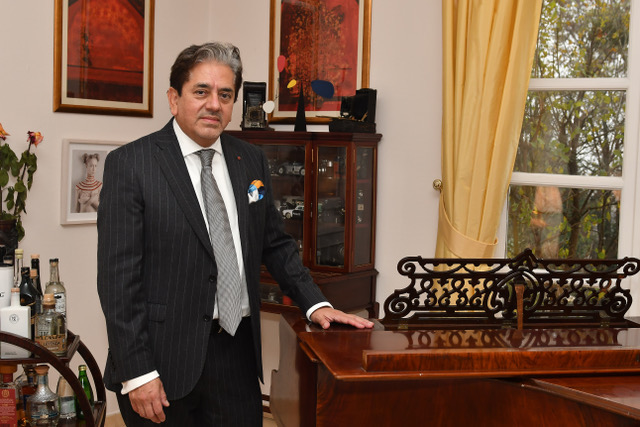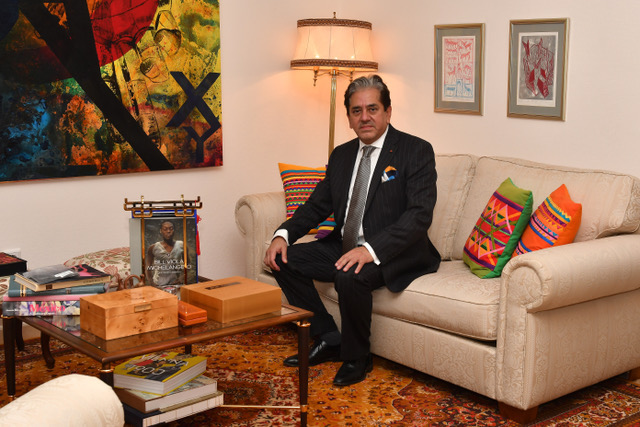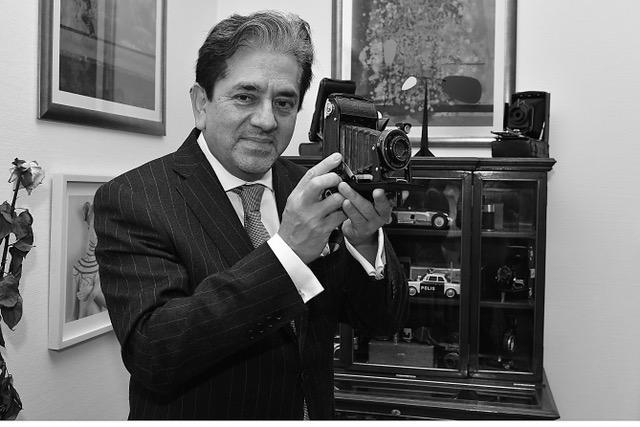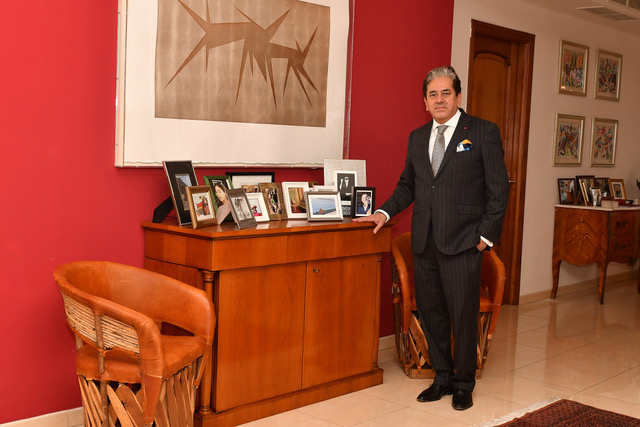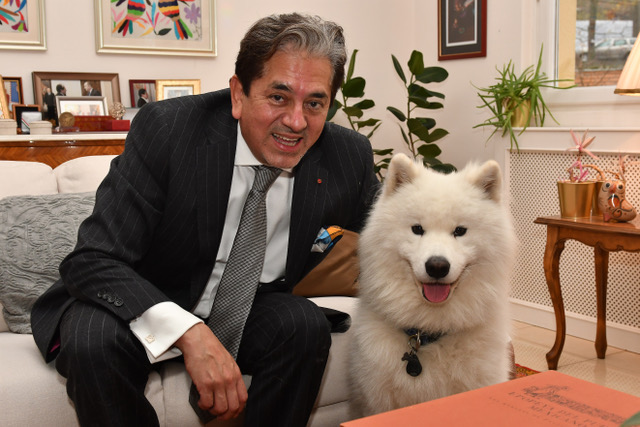Farewell Interview with H.E. David R. Nájera, Ambassador of Mexico to Hungary
Your Excellency, Your mission in Hungary is over…
Yes, I return to Mexico City, it is a natural replacement process since I’m already in my 4th year of service here in Hungary. After ten years out of Mexico, it is time to go back home and I will stay there for two years before being posted abroad again.
Do You have a dream posting?
Not specifically and I’ll tell you why: As you may know, my wife is also in the foreign service and for most of our careers we have managed to be posted to the same destination, but in the last 10 years we only lived together for 2 years and a half. Meaning we only see each other on weekends or every other month. Of course, this has a personal cost in our relationship. Currently she is in charge of our Embassy in the UK and for the past 5 years she’s been working on the multilateral office with international organisations and recently has also been responsible for all bilateral matters. Mexico has close ties with the UK, so this represents an important amount of responsibility. As for social and diplomatic life, she is by herself, just like me. For some important events like our national day, she flies here with our daughter, but it is always brief and must fly back to London the next day. So to answer your question, my dream posting is wherever we can be and work together.
How would You summarise Your achievements during Your tenure?
The official goals are related to the bilateral relation: to represent your country, to enhance political and trade relations, cultural presence and tourism. The Embassy has worked quite hard and I think we have accomplished all these aims, except the increase of trade. Both Hungary and Mexico are economically very closely linked to their respective neighbours, thus it is difficult to call the attention of the business community to invest so far away, more than 10,000 km. We need to work harder on this, and I hope we can deepen relations between our countries. In this sense, I have built good relationships with key people and institutions to create interaction spaces and projects. For instance, our yearly Spanish language competition for Hungarian students. Indeed, a language opens your mind, enhances personal development and offers new opportunities, giving more freedom. Another annual contest is the GRULAC or Latin America Group, organised in collaboration with the Ministry of Foreign Affairs and other institutions, with the aim of creating and reinforcing links between our countries and Hungary, i.e. not just a simple competition. The Frida Kahlo exhibition in Hungary was a success. The idea had already been discussed between the Hungarian cultural authorities and the Mexican representatives of the collection, and then we got a bit of luck. The exhibition was in one point and was ready to quote to another point. But thanks to a calendar space and affordable costs, it was possible to bring it to Hungary in the summer of 2018. Many opportunities arose from this project: we organised lecture series together with the Hungarian National Gallery, the Mayor of Budapest agreed to pay for some promotional ads here and it was also promoted in other capitals close to Budapest. But most importantly, this grandiose exhibition helped to put Budapest on the international level of capitals where one goes for art and international exhibitions.
Another aspect of my activities during my tenure here was working with some universities and the Hungarian education system for children with special needs, which has been very important for us. You know how well ambassadors are received everywhere, I think we must pay it back, or use this kindness for other purposes and continue to address those needs.
How do You see the role of diplomacy?
Contrary to what many people think, I perceive diplomacy as a workflow that transforms slowly and needs to adapt to changing times and tackle challenges with creativity. We work under an international set of rules that allow us to be posted overseas, enjoy diplomatic immunity and make contacts, among other activities. We must respect, work, interact and create within this legal framework in our everyday diplomatic tasks. The essence of diplomacy lies in the relationship between two states. For instance, during the pandemic, diplomacy has to adapt to new conditions. We now have different challenges and ways to communicate than, let’s say, 100 years ago under the Spanish flu, and we are pressured by the speed of communications and interactions. A diplomat must be adaptive, creative, flexible and ready to react.
Do You have a favourite subject in diplomacy?
What fills me with passion is history. It gives me a better understanding of where I am posted, what is behind the behaviour and motivation of local society. As well as the links with Mexico, if there are any. Understanding and creating these links is always an enriching part of cooperation. When I was preparing to leave London, being in charge of our Embassy there, Hungary was one of my main options. I wanted to serve here because I have never been in Eastern and Central Europe. Yet I read a lot about the history of the region. During my postgraduate studies in Mexico, I specialised in Middle Eastern history and discussed a lot about the Turkish Empire and the end of the Roman Empire. I also learned a lot about the Mediterranean, notwithstanding my knowledge remained quite general in the area. I knew something important had happened in this part of the world: Vienna, Budapest, Prague, Trieste in the late 19th century. Numerous renowned intellectuals coincided here in those years, an impressive zenith and then a full desert, a disaster. Something that in my opinion, the relevance of the intellectual thinking in Central Europe, many American and British scholars fail to address or include in their researches. My time in Hungary helped me to understand the Western impact of my own cultural identity with other perspectives.
What was it like working in Hungary?
There is a large diplomatic corps in Budapest, with all kinds of personalities. The Hungarian society is open and interested in diplomats, which greatly helps our duties. It is indeed not hard to open doors, find links and establish relations. The complexity of the Hungarian government, the language barrier and the constant administrative changes can make it a bit difficult to orientate oneself. But there is always someone ready to help, and I must admit that the Ministry of Foreign Affairs and Trade has been very helpful to all of us, as well as the local authorities. I think Hungary is a country where you can do a lot, but in a country with a challenging language barrier, embassies depend deeply on our local staff to be fully effective. They are more than just translators and we need to keep them motivated to help us identify new opportunities. This is part of a daily work for a diplomat in Hungary. Similarly, the diplomatic community is very active. For example, in an agreement with the mayor of the 12th district, we are planning a space in the Normafa Park to be called “Paseo Latinoamericano”, where people will find Mexican, Argentinian, Brazilian, Chilean, Colombian, Ecuadorian and Peruvian named trees. It is also relevant that a Metro station on the oldest line of the continent is called Mexico, which reflects that even then we were already in the interest of the Hungarians.
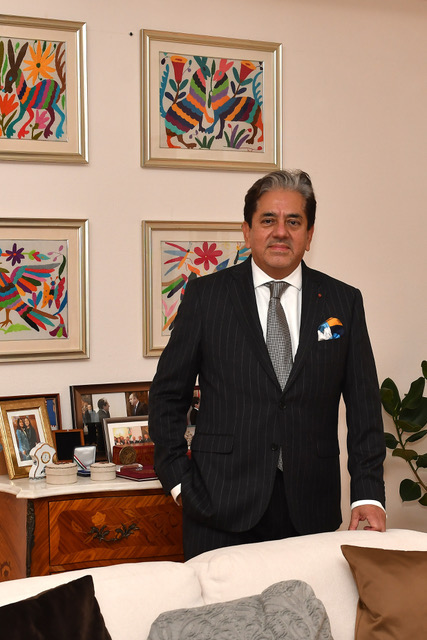
What is Your message for 2021?
The pandemic has brought new challenging conditions, and when it ends, we must pay attention to the remaining scars in society. This pandemic has proven strong inequalities in economic terms, but also in access to health and education. How to address these differences remains the main challenge. In Europe, it will be less complicated, but in countries with higher inequality it will be a huge political challenge. As this has affected the entire world, our common goal is to recover on health and on economy. We are witnessing the weaknesses of our system and found ourselves in a scenario where a single government or political party cannot solve it alone: we really need full social participation and solidarity, and a serious concern about Climate change. In this sense, I think 2021 will be a year of opportunities for people coming together, but we must be patient and creative. Today I leave full of beautiful memories and friendships, and take a “living souvenir” with me from Hungary: Bruno, my beautiful snow-white Samoyed dog…
Anna Popper
Source: Diplomatic Magazine

